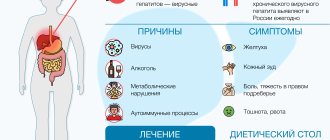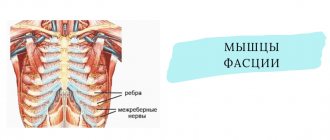A strict regime, a specific diet, physical activity, all this cannot be avoided during military service. The presence of gastrointestinal diseases in a young man can become an obstacle to the full performance of military duty. Many young men, including their relatives, are interested in whether they are accepted into the army with pancreatitis or whether they can hope for release, citing pathology.
It is difficult to answer the question that concerns conscripts unambiguously in absentia. Each case is carefully studied by a medical commission at the military registration and enlistment office, after which a final verdict is made whether the future defender will join the army or not.
Features of the course of the disease
Attacks of acute pancreatitis occur not only in old age, but also in young people. They arise as a result of disturbances in the functioning of the pancreas. This delicate organ is sensitive to any aggressive influences.
Responsible for the breakdown and digestion of food, the gland secretes pancreatic juice. Its important enzymes serve as the basis for the intake of nutrients from food into the body. The gland also produces insulin, the most valuable hormone involved in carbohydrate metabolism.
If the pancreas malfunctions, severe vomiting begins, and the patient feels pain in the upper abdomen. The cause of the condition is that enzymes cannot enter the duodenum and begin to corrode the gland tissue.
An attack of acute pancreatitis is blocked only in special medical institutions. If nutritional rules are not followed, chronic pancreatitis or diabetes mellitus subsequently develops.
What is pancreatitis
Pancreatitis is literally inflammation of the pancreas. The term combines a wide range of different diseases and syndromes in which organ tissue becomes inflamed. Take this fact into account when studying medical records.
Why is this pathology dangerous? The pancreas normally produces enzymes - substances that decompose food particles into compounds - sources of energy. Enzymes enter the duodenum - this is called external secretion. When the pancreas is damaged and inflamed, the production of enzymes may decrease or increase - in both cases this is not beneficial to the body.
But the main danger of pancreatitis is blockage of enzymes in the gland itself, for example, due to the fact that a stone from the gallbladder blocks the duct into the duodenum. Then the enzymes begin to work in the gland itself and actually digest it instead of food, slowly destroying it. That is, pancreatitis is dangerous not so much in itself, but because of the real threat of destruction of the inflamed organ.
In addition, the pancreas has mixed secretion, that is, it secretes some substances into the cavity of other organs, and others directly into the blood. With pancreatitis, enzymes and products of self-digestion of the pancreas partially enter the bloodstream. The blood carries them to all internal organs, giving the pathology a systemic character. The liver, lungs, heart, kidneys and brain are primarily affected.
Pancreatitis can be congenital: genetically determined or transmitted from the parent organism. But in most cases, the pathology is acquired as a result of parasitic diseases, including helminthic diseases (helminthic infections), injuries, poisoning, viral and bacterial infections, and fungal diseases. Pancreatitis may also develop after surgery and endoscopy. However, 90% of cases are a complication of gallstone disease - cholelithiasis (20%) and a consequence of alcoholism (70%).
The most common mechanism for the development of pancreatitis after alcoholism is blockage of the duct with a gallstone.
Category of suitability for patients with pancreatitis
When the young man has already suffered the stage of acute pancreatitis, he will need to provide documents confirming the diagnosis to the military registration and enlistment office. A repeat examination is carried out at the military registration and enlistment office. If the diagnosis is unclear, they may send you for additional tests or an ultrasound scan to a medical facility.
The conscript is assigned a fitness category in accordance with Article 59, which is in the Schedule of Diseases.
Category D
Those who have:
- relapses of acute pancreatitis occur more often than 2 times a year;
- type 1 diabetes mellitus develops;
- show severe exhaustion;
- deficiency of vitamins and microelements is expressed.
Category D is assigned to conscripts who have undergone pancreatectomy. Persons with pancreatic fistula, in conditions after abscess and pancreatic necrosis are not accepted into the army. A note about unfitness for military service is made on the military ID.
Limited use
Assignment of category B is associated with a chronic form of pancreatitis. Frequent relapses characteristic of the disease will not allow the young man to serve in accordance with the Charter. Young people who have seriously impaired pancreatic function, especially the secretory one, will not be accepted into the army. He requires a special diet, which is impossible during military exercises.
A person with chronic pancreatitis is enlisted in the reserve by issuing a military ID in hand. Conscripts will be subject to mobilization only in wartime. It is taken with a chronic form of the disease when exacerbations of the disease are rare, and treatment gives a stable remission.
How to solve problems that may arise
Without officially recording each exacerbation, the guy may face unlawful actions on the part of medical workers recruiting new recruits. Verbal complaints, even at an advanced stage of pancreatitis, that do not have confirmation, are often ignored by the commission, which ultimately sends the young man to the unit.
Contacting a company that has been working with conscripts for 11 years and has an impeccable reputation will help you avoid any possible misunderstandings.
Medical workers and military lawyers on staff have extensive experience in this field. More than 5 thousand young men were able to obtain a military ID in a short time without violating the law. A free first consultation will be a nice bonus.
Fill out an application on the website or just call 8, and our specialists will help you understand the most difficult situation.
How to prove unfitness for service
Persons with pathological processes in the pancreas, in order to free themselves from the burden of military service, should know whether they are recruited into the army with chronic pancreatitis. A package of documents is prepared in advance to confirm the diagnosis with:
- an extract from an outpatient card taken at a local clinic;
- medical history from the hospital;
- results of analyzes and instrumental studies;
- conclusion of a gastroenterologist.
When the disease has just begun to progress, you should request a referral for examination and diagnosis to a dispensary. During the period of examination, the conscript is given a deferment from the army.
Pancreatitis at military age
Pathological conditions of the pancreas, forms, stage of the disease, the degree of suitability of the conscript for service in the ranks of the Russian Army are determined by Article 59 of the special Schedule of Diseases. According to the clinical form of the pathology and the degree of suitability for service, three main subsections of the section are distinguished:
Pancreas
- Point A provides for a form of pancreatitis with significant impairment of secretory and endocrine functions. This means that the conscript’s function of producing and releasing hormones into the blood – insulin and glucagon – is significantly impaired. Such disorders lead to the development of severe endocrine pathology and are associated with disorders of the islet cells of the organ. The excretory activity of the organ includes the secretion of digestive enzymes by the gland, the participation of the organ in the processes of digestion and assimilation of food.
- Point B implies the presence of moderate disorders of the listed functions of the gland, frequent recurrent conditions of chronic pancreatitis. The frequency of such exacerbations is at least several times during the calendar year.
- The item provides for minor deviations in the structure and functional activity of the pancreas.
What documents are required for confirmation?
Before going through the draft board, a conscript must prepare in advance a package of documents proving that he has been diagnosed with pancreatitis to present them to the doctor (therapist).
Based on the study of these papers, which describe the nature of the course of pancreatitis and the presence of complications, the specialist writes his conclusion, indicates the number and paragraph of the article and assigns the conscript the appropriate category of suitability for the army.
List of necessary medical documentation that a conscript with pancreatic disease must take with him to the commission:
- The original outpatient card or an extract from this document, certified by the signatures of the attending physician and the deputy chief physician for outpatient or medical work and the seals of the clinic where the young man is being observed. This extract should describe in detail the patient's medical history: when the symptoms of pancreatitis first developed, how the disease progressed, what medications the patient receives, descriptions of all episodes of exacerbations, courses of outpatient and inpatient treatment.
- Conclusion of the gastroenterologist who consulted the patient.
- Discharge summaries (originals or copies certified with the necessary signatures and seals) from the gastroenterology or therapy department, where the conscript received inpatient treatment for pancreatitis.
- The results of all “fresh” tests and instrumental studies: general blood test, urine test, biochemical blood test, tests for hepatitis, scatological examination, ultrasound results, CT scan of the abdominal organs with a detailed description of the condition of the parenchymal organs, FGDS (fibrogastroduodenoscopy).
Cases of contraindications to military service
Pancreatitis is an inflammation of the pancreas that affects the tissues of the organ. As a result, there is a disruption in the functioning of the digestive system, digestion, assimilation of food and disruption of the usual activities of the entire body.
The disease is accompanied by an increase in temperature, gas formation, acute painful spasms in the abdominal area, and vomiting with bile impurities. Sometimes it can lead to a decrease in blood pressure and dizziness. In complex cases and when the disease is advanced, urgent hospitalization may be necessary.
Note! The prolonged course of the disease can cause undesirable consequences - diabetes, internal bleeding, kidney failure and others. Based on the results of the tests, the treating specialist assesses the severity of the disease and the likely danger during the course of the disease.
Pancreatitis is divided into 2 types:
- Acute - passes quickly and is dangerous in that it leads to irreversible changes in the pancreas.
- Chronic – “wavy”, there is a change from relapse to remission. In this variant, the glandular tissue is replaced by connective tissue, which cannot produce the required enzymes. If a person comes to the doctor with complaints and signs of pancreatitis 2 or more times a year, then the disease is of the chronic type.
Many guys are not even aware of the presence of various diseases in their bodies, which can cause a young man to be unfit for military service. Taking into account the degree of the disease, the frequency of exacerbations, the general condition in Article 59 “Schedule of Diseases” there are descriptions of some subparagraphs that determine the likelihood of serving in the armed forces, being unfit for service or receiving a deferment:
- Point A – significant disturbances and complications in the functioning of the gastrointestinal tract, secretory and endocrine dysfunction, in which the young man has significant difficulties with the release of certain hormones (insulin, glucagon) into the bloodstream. This leads to significant disruption not only of the pancreas, but also to endocrine disorders.
- Point B considers the condition when frequent exacerbations occur during chronic pancreatitis (several times a year).
- Point B highlights minor pathologies in the activity of the pancreas.
Did you join the army in 2019-2020?
The list of diseases with which a conscript is considered unfit for military service is regularly updated by the military leadership of the state. In 2014, a new edition came into force, which applies to subsequent years. Diseases classified as category D are those diseases when a conscript is completely and completely released from the army.
The official document, which lists all the diseases, is called the “List of Diseases,” of which there are more than 2000. According to this document, in 2019-2020, the rules for admitting conscripts with chronic pancreatitis are identical to the current rules.
Find out if conscripts with gastritis are accepted into the army? — Methods and means of treating diseases
Gastritis, an inflammatory disease of the stomach lining, is an extremely common pathology today that can cause many unpleasant symptoms and lead to other disorders of the gastrointestinal tract. Many young people are concerned about the question of whether they are accepted into the army with gastritis, in what form this disease must be in order for service to be prohibited.
First of all, it is worth noting that gastritis is not a contraindication to military service in itself. Usually, this disease without any complications is not a reason for exemption from the army, even if it occurs in a chronic form. Therefore, everything depends on what diseases and complications accompany this pathology.
Those with superficial gastritis, regardless of its form, which is not accompanied by erosions or other serious disorders requiring constant medical supervision and complex treatment, are usually drafted into the army. In the early stages, this disease is completely curable, so it is not an indication for a young man not to serve.
However, if gastritis is accompanied by complications, the likelihood of not joining the army increases. The main thing is to undergo a full examination, which will show that this disease is in an advanced form; the diagnosis must be fully confirmed.
Do they take into the army with chronic gastritis?
A conscript is exempt from military service upon passing a military commission if he has already been hospitalized for urgent treatment for chronic gastritis, and there is a possibility that he will require re-hospitalization. If there is a threat of a sharp deterioration in the condition, the conscript is considered partially fit for military service.
Also, in addition to hospitalization in the past, the conscript must undergo full treatment for this disease, which includes taking certain medications and a strict diet, which cannot be maintained during military service. The combination of all such signs makes a young man limitedly fit for military service. It is worth noting that complete liberation is not given in any case.
People with gastritis and underweight may be called up for service, but in any case it all depends on the condition of the person as a whole.
Those with gastritis and ulcers, erosions, and other severe complications of this inflammatory disease of the stomach are usually not drafted into the army. An ulcer, if accompanied by complete dysfunction of the digestive tract, may be considered unfit for military service. However, in this case, a condition similar to a disability is often required.
In general, because of this stomach disease, it is quite difficult to obtain exemption from the army; usually it all depends on the individual characteristics of the course of the pathology.
- If a person has ordinary chronic gastritis, without any complications of the disease, but exacerbations often occur, there is a possibility that hospitalization may soon be required, and the person may be considered partially fit for military service.
- We can talk about possible exemption from military service if inflammation of the stomach lining is accompanied by various disturbances in its function and disturbances in the production of secretions. Therefore, you should not count on exemption from military service if this disease is present.
- If the pathology has been identified for a long time, and it occurs in a fairly mild form, in which it is not possible to obtain release, it would be more rational to cure this disease before serving in the army.
It is also worth remembering that it is advisable to undergo any examinations before conscription and passing a medical commission. Many diseases for which it is possible to obtain exemption from the army require quite a long diagnosis and constant monitoring of the state of health.
During a routine medical examination at the military registration and enlistment office, there is a possibility of missing some pathology that is just beginning to develop. Therefore, if there are any signs of illness or something begins to bother you, you should visit the appropriate specialist before the start of the conscription.
In many cases, it is impossible to identify gastritis during the commission; in addition, to obtain exemption for many pathologies, medical history, facts of contact with specialists and hospitalization are important. Therefore, it is advisable to worry about the state of the body even before the start of the call, especially if there are any diseases present, they begin to develop.
ul
Determination of the degree of suitability based on the points of the “Schedule of Diseases”
The degree of suitability of a young man for military service depends on the severity of the pancreatic disease. The specific degree of fitness is determined by each item of the “Schedule of Diseases” (Article 58).
Point "A"
Based on the severity of the disease, in accordance with this paragraph, the young man is recognized by the medical commission of the military registration and enlistment office as completely unfit for military service. In this case, the military ID is marked with fitness category “D”.
The disease has a chronic form with severe clinical symptoms. The patient often experiences relapses throughout the year. Severe abnormalities observed in the patient:
- Diabetes;
- Pancreatogenic diarrhea;
- Deficiency of microelements and vitamins;
- Exhaustion.
Fitness category “D” is assigned to a conscript if he has severe pathological complications:
- Condition after pancreatic necrosis, abscess or resection of the pancreas;
- Presence of pancreatic fistula.
In this situation, the young man is given a military ID in his hand. The documents note that he is not fit for military service, both in peacetime and wartime.
Point "B"
If the severity of the disease corresponds to this point, the young guy is assigned category “B” of fitness for military service.
In this situation, the patient was diagnosed with chronic pancreatitis with disruption of the pancreas and frequent relapses. The conscript is released from military service and is enlisted in the reserves during peacetime. Accordingly, in the event of an attack on the state, he is drafted into the army.
Point "B"
If there is a pathology corresponding to point “B”, the conscript is considered fit for military service, but not in all branches of the military. A citizen is assigned a fitness category “B”, which is further divided into 4 subcategories by branch of service.
This group includes young people with unexpressed abnormalities in the functioning of the pancreas, rare exacerbations of the pathology, if a state of stable remission is observed.
If the disease develops in this form, a young guy will not be accepted to serve in the Marine Corps, Airborne Forces, border troops, submarine and tank forces.
Pancreatitis and the army in 2022
If the diagnosis is confirmed, the examination takes place under Article 59 of the Schedule of Diseases, which reads as Other diseases of the stomach and duodenum, diseases of the liver, gallbladder, biliary tract and pancreas. Fitness categories are assigned by the military medical commission as follows:
- a) with significant impairment of functions – D;
- b) with moderate dysfunction and frequent exacerbations – B;
- c) with minor dysfunction – B.
Point “a” includes:
- cirrhosis of the liver;
- chronic progressive active hepatitis;
- chronic recurrent severe pancreatitis (persistent pancreatic or pancreatogenic diarrhea, progressive exhaustion, polyhypovitaminosis);
- consequences of reconstructive operations for diseases of the pancreas and biliary tract;
- complications after operations (bilious, pancreatic fistulas, etc.).
Point “b” includes:
- gastritis, gastroduodenitis with impaired secretory and acid-forming functions, frequent exacerbations and malnutrition (BMI 18.5 - 19.0 or less), requiring repeated and prolonged hospitalization (more than 2 months) if treatment in a hospital setting is unsuccessful;
- chronic hepatitis with impaired liver function and (or) moderate activity;
- chronic cholecystitis with frequent (2 or more times a year) exacerbations requiring treatment in a hospital setting;
- chronic pancreatitis with frequent (2 or more times a year) exacerbations and impaired secretory or endocrine function;
- consequences of surgical treatment of pancreatitis resulting in a pseudocyst (marsupilization, etc.).
Point “c” includes:
- chronic gastritis, gastroduodenitis with minor disruption of secretory function with rare exacerbations;
- biliary dyskinesia;
- enzymopathic (benign) hyperbilirubinemia;
- chronic cholecystitis, cholesterosis of the gallbladder, pancreatitis with rare exacerbations with good treatment results.
There are chances to be released from service, but you need to confirm the diagnosis, the severity of the disease, dysfunction of the pancreas, frequent relapses, and ineffective treatment.
Are they recruited into the army with pancreatitis in Ukraine, Belarus and other CIS countries?
Ukraine, Kazakhstan, Belarus and other CIS countries have similar regulations for conscription to military service, as in Russia. Conscripts with pancreatitis in these countries also undergo a military medical commission and receive the appropriate fitness category, according to their state of health. Considering the severity of the disease, the frequency of exacerbations, the severity of endocrine or exocrine dysfunction, conscripts with pancreatitis admit:
- Unfit for military service.
- Limited availability.
- Eligible with restrictions.
When a conscript is diagnosed with pancreatitis, military service is often contraindicated. When passing the draft board, the young man is assigned a category of fitness for military service. The specialist is obliged to carefully study all medical documents prepared in advance by the conscript.
How to confirm the diagnosis
Pancreatitis is an inflammation of the pancreas caused by external and internal factors. The enzymes necessary for digesting food are not thrown into the duodenum, but are activated while in the stomach. This leads to damage to mucosal tissue, digestive disorders, and painful manifestations. Self-digestion leads to the accumulation of toxins in the body, which enter other organs through the blood - the brain, heart, liver, lungs, kidneys. Pancreatitis entails dysfunction of the liver, gall bladder, stomach, and duodenum.
Experts distinguish acute pancreatitis with pronounced symptoms, chronic - with a sluggish course, constant poor health, recurrent - a chronic disease with frequent exacerbations. To confirm the diagnosis, ultrasound, FGDS, laparoscopy, blood tests for amylase, and urine tests for diastase are used. However, the diagnosis of acute and chronic forms of pancreatitis is somewhat different.
To confirm the diagnosis, you need to seek help from a gastroenterologist, therapist, and undergo an examination. But in order to prove a recurrent, chronic form, you need to contact a specialist every time there is an exacerbation. All data must be recorded in the medical record. It indicates symptoms, duration of the exacerbation phase, effectiveness, ineffectiveness of therapy, stay in hospital treatment, recommendations, verdicts of specialists.
Deferment from the army for pancreatitis
If an acute form of pancreatitis develops during service, the serviceman is sent to the hospital for treatment, until completion of which he receives a deferment. After which, military doctors decide on the issue of either returning the soldier to the military unit, or transferring him to hospital if the course of the disease is unfavorable.
If reactive pancreatitis is detected in a young man subject to conscription into the Armed Forces, he is also sent for inpatient treatment with a deferment until complete recovery.
The fate of conscripts with chronic pancreatitis
Some pre-conscription conscripts and their relatives are interested in whether they are accepted into the army with chronic pancreatitis.
Acute pancreatitis is characterized by severe manifestations and a clear clinical picture. This condition is caused by endogenous intoxication. The effect of activated gland enzymes resembles snake venom. Poisoning of the human body occurs from the inside. The more enzymes the gland produces, the worse the patient feels. Acute pancreatitis requires hospital treatment.
With a chronic course of the disease, patients complain of constant poor health. They experience vague symptoms - nausea, heartburn, belching, heaviness in the right side, abnormal stool, weakness, etc.
An exacerbation of the pathology with an increase in negative symptoms can be provoked by both internal and external factors, for example, smoking, alcohol, poor diet, stress, a sedentary lifestyle, lack of rest, excessive physical activity.
Whether a conscript with chronic pancreatitis will be granted exemption from the army will depend on the number of exacerbations recorded during the year. With 2 or more relapses per year and inpatient treatment for more than 2 months, the young guy is assigned fitness category “B”.
Without official confirmation of recurrent pancreatitis, the young man is assigned fitness category “B” and drafted into the army. But, if already in the military unit the soldier begins to show relapses, he will be discharged.
Pancreatitis in a conscript
The inflammatory process in the tissues of the pancreas is usually characterized by a chronic course with alternating periods of exacerbation and remission. The severity and frequency of exacerbations depend on the severity of the inflammatory process, general health, human immunity, the cause of pancreatitis, and most importantly, on the patient’s adherence to therapy, compliance with all doctor’s recommendations for treatment, nutrition and lifestyle.
The symptoms of acute reactive (or exacerbation of chronic) pancreatitis are quite severe:
- intense abdominal pain of a girdling nature, sometimes radiating into the chest,
- nausea, uncontrollable vomiting that does not bring relief to the patient,
- increased gas formation, bloating,
- diarrhea,
- general weakness, dizziness,
- drop in blood pressure,
- increase in body temperature.
After stopping an attack of pancreatitis and achieving a period of remission, the patient’s condition improves, but periodically after eating, bursting pain in the abdomen, a feeling of nausea, and abnormal bowel movements (diarrhea or constipation) may occur.
In military conditions, it is impossible to fully comply with all the doctor’s recommendations for the prevention of exacerbations of pancreatitis for the following reasons:
- it is not possible to follow therapeutic diet No. 5, developed for patients with pancreatitis,
- constant fairly heavy physical activity,
- possible severe morale, frequent stressful situations,
- inability to receive correct regular medication treatment.
Depending on the degree of decline in gland function and the frequency of deterioration, suitability for military service is determined.





![Rice. 2. Clinical stigmas of chronic atrophic gastritis [4] 2. Clinical stigmas of chronic atrophic gastritis [4]](https://zakam.ru/wp-content/uploads/ris-2-klinicheskie-stigmy-hronicheskogo-atroficheskogo-gastrita-4-fig-2-330x140.jpg)




